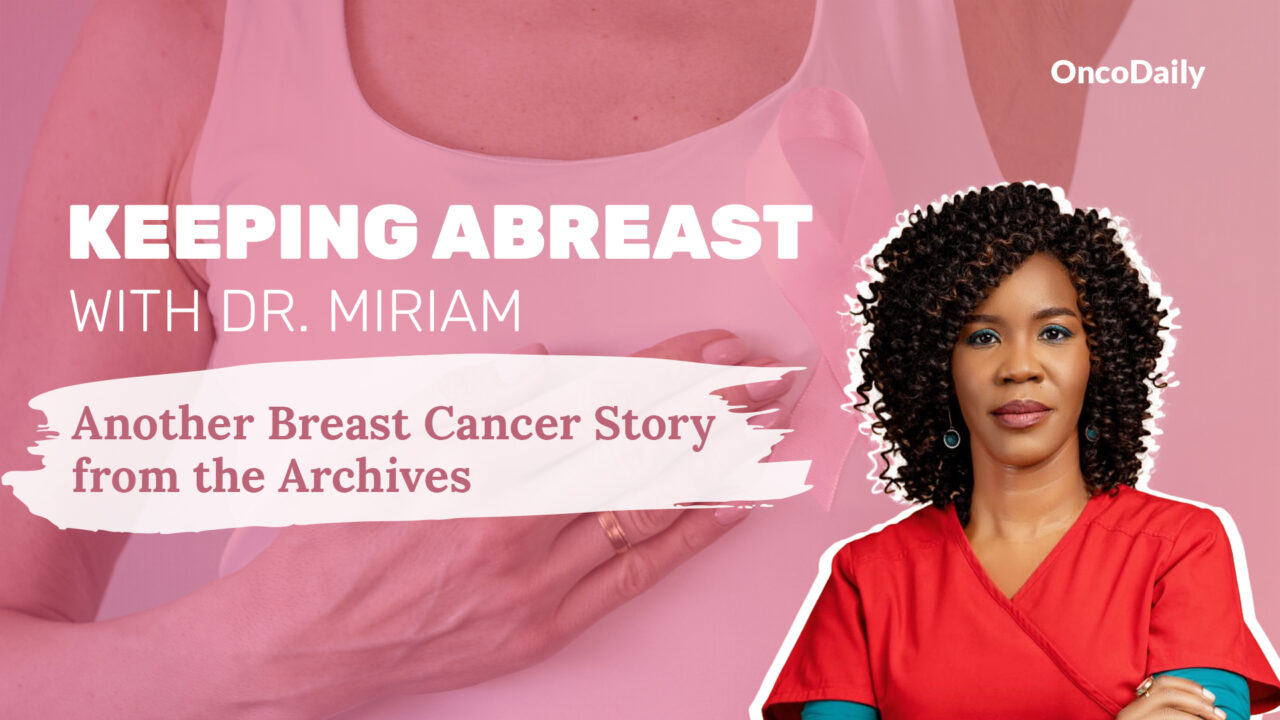Miriam Mutebi, Breast Surgical Oncologist at Aga Khan University Hospital, posted on LinkedIn:
“Another heart wrenching breast cancer story from the archives.
– Claire (not her real name), a university lecturer, came to our institution seeking a second opinion.
After a thorough review by our team, we recommended chemotherapy, followed by surgery and radiotherapy, as the best course of action to treat and potentially cure her cancer. Despite extensive counseling, Claire was convinced by her family that a combination of herbs and prayers would be equally effective. Unfortunately, despite repeated efforts to engage her and her family, she dropped out of the system. 10 months later, she returned with cancer that had spread beyond her breast into multiple areas of her body and was no longer curable. We did our best to provide supportive care, but sadly, she eventually succumbed.
Stories like Claire’s haunt us as clinicians.
What more could we have done?
Part of my drive in sharing these stories openly is not because they are unique, but that the information could help save someone else. Scientifically unverified myths can prevent early cancer detection and effective treatment. In a day where knowledge is more easily accessible than ever before, it is increasingly crucial to separate fact from fiction when it comes to our breast health.
– One common myth is that breast cancer is solely an ‘older woman’s disease.’
In reality, breast cancer can affect women of all ages, even those in their 20s and 30s. Being aware of your family history and understanding your own breast health is vital for early detection. Regular self-exams and screenings are your best defense, regardless of age.
– Another myth is that herbal remedies can cure breast cancer. While some traditional treatments may offer comfort, they should never replace medical intervention.
Early detection through screenings, imaging, and consultations with healthcare professionals is essential for effective treatment. Ignoring symptoms in favor of cultural remedies can have dire consequences. Empower yourselves and your communities with knowledge. As often as you can, don’t hesitate to ask questions, seek medical advice, and advocate for your breast health. Whether it’s understanding the importance of screenings or recognizing the symptoms of breast cancer, being informed is your best tool.
– While we must embrace the positive aspects of our cultural heritage, let’s continue to prioritize medical science.”
Miriam Mutebi is a Breast Surgical Oncologist and Assistant Professor in the Department of Surgery at the Aga Khan University Hospital in Nairobi, Kenya. She is the President of the African Organization for Research and Training in Cancer (AORTIC), and past president for Kenya Society of Hematology and Oncology (KESHO) and on the Board of Directors of the Union for International Cancer Control (UICC). She is the co-founder of the Pan African Women’s Association of Surgeons and is part of the Kenya Association of Women Surgeons. She is an avid supporter for the education and support for women, especially in surgery and she aims to provide mentorship for women in surgery and to improve women’s health and surgical care in Africa. She is currently pursuing a pilot’s license in order to extend breast care services to marginalized areas.


